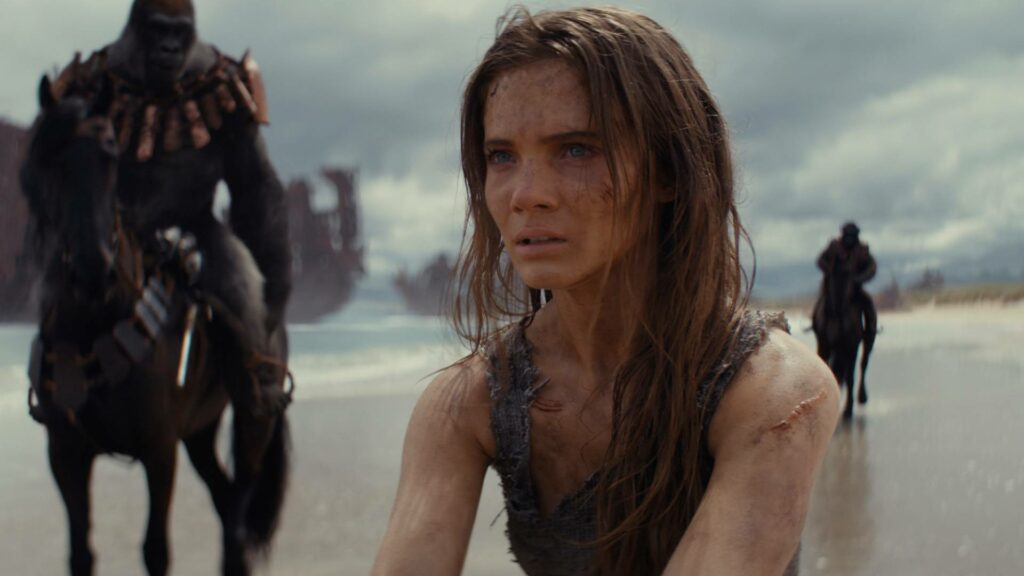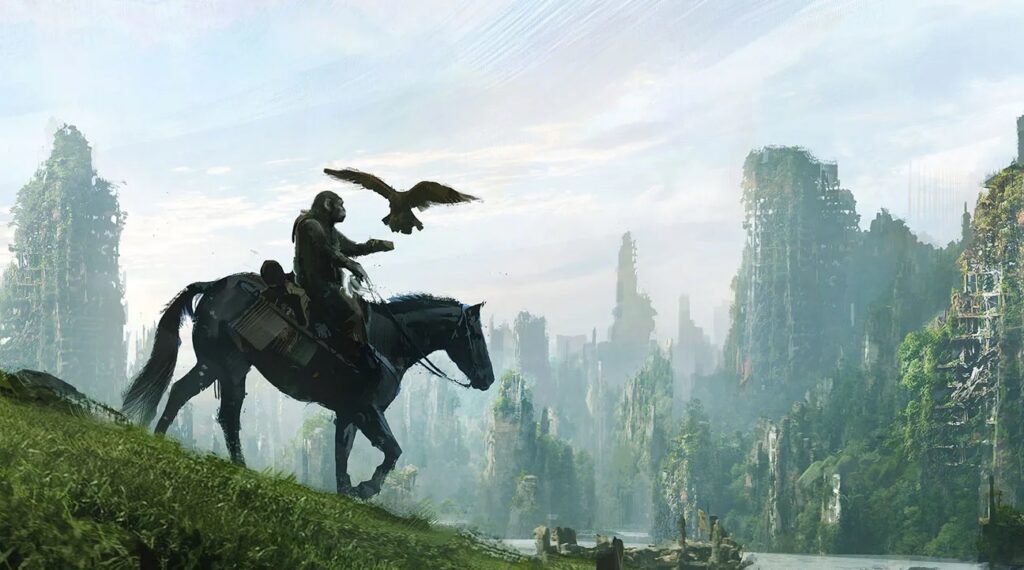Few could have imagined that a contemporary re-imagining of the Planet of the Apes franchise would have led to one of the best trilogies of modern cinema. The trifecta of Rise, Dawn, and War elevated the medium with cutting-edge motion capture and grounded, emotional reflections of our sociopolitical values. Seven years later, Wes Ball is bringing us ever closer to the events of that first 1968 film with his follow-up, Kingdom of the Planet of the Apes.
Set 300 years after the end of War, a sequel of sorts but also a soft reboot for the uninitiated, Kingdom picks up in a fully-fledged Planet of the Apes. Caesar has become a martyr whose legacy has been claimed by many, each with opposing ideologies of what he stood for. Noa (Owen Teague) and the Eagle Clan have cultivated a little patch of residency away from the biblical preaching and prophecy of Caesar’s time. However, when human Mae (Freya Allen) prompts the arrival of an imposing clan, led by egomaniacal Proximus Caesar (Kevin Durand), Noa is forced to head out after them when they lay waste to his home.

What has always made these films so interesting is the relationship between apes and humans; the moral ambiguity of how each values (or doesn’t) the other and the intrinsic ways in which both are tied together by the tragedy of inheriting a world ruined by man’s destruction. It’s reverse evolution; it’s a humble reminder that we haven’t inherited the Earth and we’re not too dissimilar to those we share it with. But Kingdom lacks the nuance and depth that its predecessors had on the subject. Mae’s relationship with Noa is thinly sketched and each’s moral obligation in the culminating moments of the film is mawkishly explored. It feels frustratingly restrained in the hopes of elaborating in future instalments. There are ruminations on legacy and how history is re-written by those that claim it (Proximus as a pariah; orangutan Racka as a purist) but the script also only scratches the surface of those themes too.
Instead, Kingdom plays it safe by leaning into more traditional action-adventure tropes. The story of a reluctant hero stepping up and traversing an unknown land to avenge his family is nothing new – especially for Ball, who tread this path with his Maze Runner films. That being said, it’s all tightly-helmed and the visual splendour of this war-torn, post-apocalyptic world is immense. The action is thrilling and it’s a lot of fun watching the various Ape factions go at it. WETA’s visual work continues to outdo itself with each entry and the photo-realistic apes move and breathe in such life-like ways that you’ll be hard-pressed to believe they’re not actually just training apes to talk and act at this point.

Kingdom mimics classic literature in many ways; it’s knotty in its politics and even characters like Racka (Peter Macon) and Proximus are something out of Greek Tragedy with dense world-building and a sprawling myriad of biblical and cultural ideas and themes. The decision to start a new chapter in the Ape mythos does mean it sometimes gets a little repetitive in its characterisation – are we really doing the ‘ape and human are reluctant to trust before realising they’re alike’ thing again? – and the slow build has little payoff when the script leaves so much on the table for future instalments that may or may not happen. But even at its weakest, Kingdom of the Planet of the Apes is still such an enthralling world to get lost in so much careful detail to every building, every ape hair, every speckle of dirt, every blade of grass. A grand and operatic summer blockbuster, it just goes to show that apes together are still, indeed, strong.
Kingdom of the Planet of the Apes is in cinemas now.
